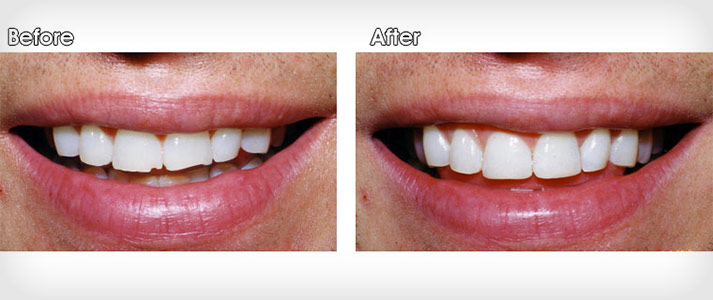
Dental Bonding What is It and do I need It
Dental bonding is a tooth colored composite resin used in cosmetic dental procedures to repair a chipped, discolored, or fractured tooth it is also used to alter the shape of a tooth or as an alternative to amalgam fillings in the front teeth. A simple and relatively painless procedure, dental bonding usually does not require an anesthetic. The exception would be for fillings where anesthesia might be required.
For cosmetic tooth repairs the dentist will use an etching material to roughen the surface of the tooth to enable the bonding material to adhere better. After the matching the color of composite material to the color of the other teeth it is placed and shaped to the tooth. The tooth will then be “cured” using an ultraviolet light to harden the material. The dentist will then polish the tooth so it matches the surrounding teeth. Depending on the repair the procedure should take 30 to 60 minutes to complete.
How do I Know if I Need Dental Bonding?
After examining your teeth your dentist might recommend a dental bonding procedure if you
- have a cracked of chipped tooth
- have a discolored tooth
- have small teeth you would like lengthened
- want to change the appearance of a misshapen tooth
- want to fill a gap between teeth
- have a receding gum line and need to protect exposed roots
After examining your teeth, the dentist will determine if dental bonding is the solution for your specific dental problem.
Dental bonding has advantages and disadvantages. Cost is one of the biggest advantages. Dental bonding is the least expensive and one of the easiest cosmetic dental procedures. Tooth repairs done with dental bonding cost much less than veneers or crowns and usually require only one appointment compared to the multiple appointments required for crown and veneer procedures. Another advantage of dental bonding is the composite resin material can be color matched, shaped to match surrounding teeth, and polished to look like your natural teeth.
The biggest disadvantage of dental bonding is that the composite resin material is not as strong or lasts as long as the more expensive cosmetic procedures. Typically dental bonding will last up to ten years before it requires touch ups or to be replaced.
Conclusion
Dental bonding is a great option to quickly and affordably improve the appearance of a chipped, cracked, or discolored tooth or invisibly fill a front tooth. Bear in mind, dental bonding may not be the appropriate treatment in all cases.
Your dentist at Dentistry For You clinic in Thornhill will determine if dental bonding is the appropriate treatment after examining the tooth or teeth and discussing your treatment goals. Call our office today at 905.731.1871 to make an appointment.